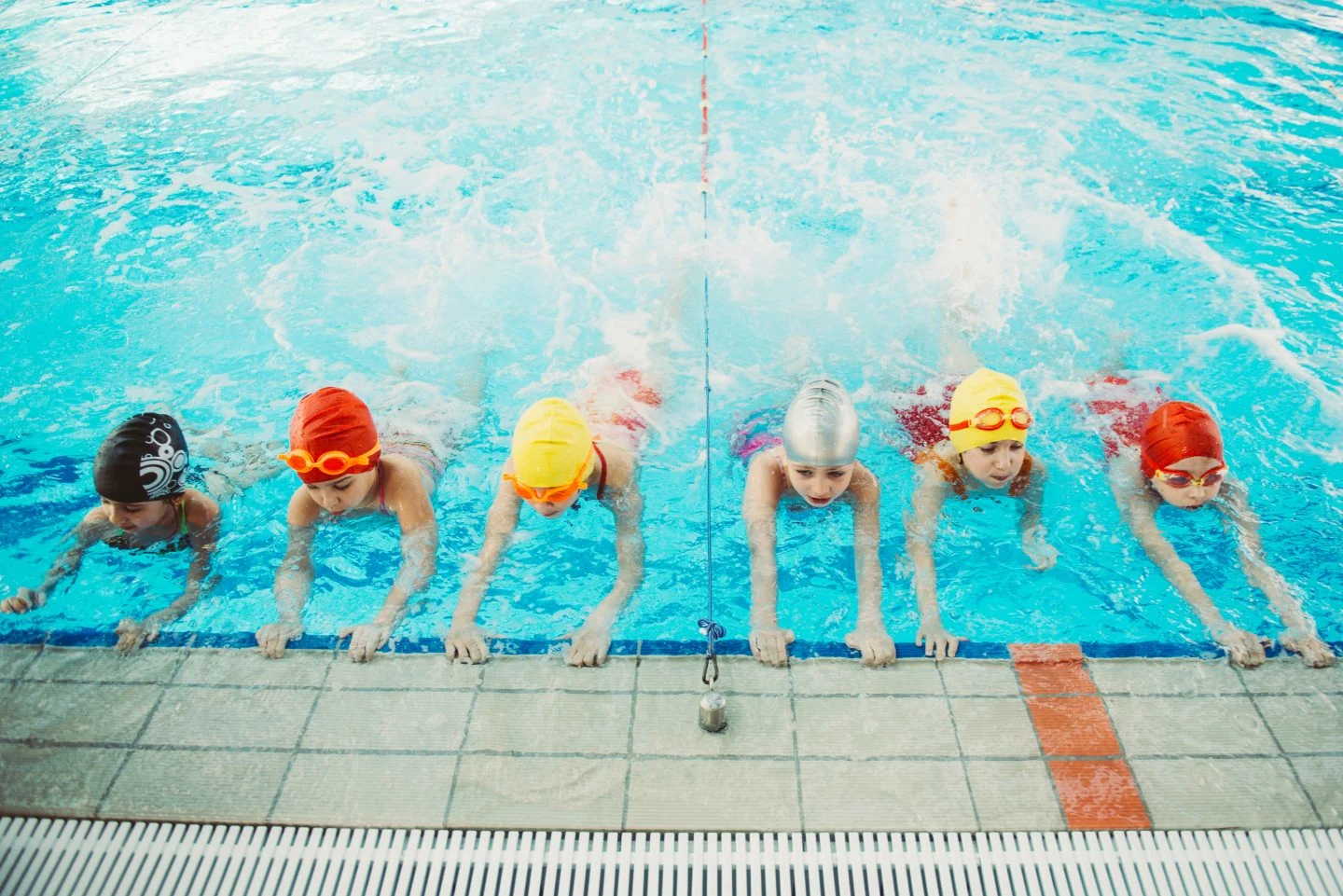Watching your little one erupt in giggles as they splash in the pool is a magical moment. But for many parents, the joy comes with a nagging question: When should I enrol my child in swim lessons? The thought of your baby being safe and comfortable in the water is a priority, and swimming classes seem like the answer.

This blog post will be your guide in exploring early swimming lessons for your child, checking out the benefits, timing it right, and choosing the perfect program. So grab your pool bag and get ready to dive into a splash-tastic adventure!
Benefits of Early Swim Lessons
Sure, splashing in the pool is a blast for your little one, but enrolling them in baby swimming lessons offers a whole lot more than just fun. Here’s how taking the plunge can benefit your young child:
Boosts Physical Development
The aquatic environment is a natural playground for little bodies. Paddling, kicking, and floating help develop essential motor skills and coordination. Imagine the pride on your child’s face when they conquer that first independent kick in warm water!
Enhances Brainpower
Studies suggest swimming can stimulate brain development, leading to improved learning and memory. Early exposure to water activities through bath time for 0 to two month-old babies or infant swim lessons might just give your little one a head start in the classroom.
Builds Confidence and Social Skills
Overcoming challenges in the water is a confidence booster for any kid. Group swim classes add another layer of fun, fostering social interaction and communication skills as your child splashes around with new friends.
Early swim programs aren’t just about learning to doggy paddle—they’re about setting your child up for a lifetime of fun and healthy habits in the water, while also introducing them to good water safety habits. Plus, these skills can even translate into basic survival skills if an unexpected situation arises.
However, it’s crucial to remember that constant adult supervision remains essential, especially near pools and bodies of water. Pool safety is critical, regardless of a child’s swimming ability.
When to Start Swim Lessons
While there’s no single right answer to ‘when’ to start swim lessons, a good approach is to consider your child’s developmental stage and comfort level in the water. Here’s a breakdown of suitable activities by age group:
Newborn (0 to 2 months)
Focus on gentle water acclimation during bath time and explore parent-and-child swim classes for bonding and comfort. These classes can be a great introduction to a positive relationship with water.
Infant (2 months to 1 year)
Basic water skills like kicking and floating with parental support are introduced in infant swim lessons. Remember, constant adult supervision is crucial during any water activity, even in a warm water environment with a life jacket.
Toddler (1 to 4 years old)
This is a great age to begin structured lessons that introduce basic swimming skills like paddling and breath control. Look for reputable swim schools with certified instructors experienced in working with young children.
There’s no one-size-fits-all approach. Consider your child’s developmental stage and interest in water when choosing a program.
Choosing the Right Swim Program
With a variety of swim programs available, finding the right fit is essential. Here are your options:
Parent-Child Classes
These involve parents actively participating with their babies in the water, promoting bonding and familiarity.
Group Lessons
These offer a social environment for toddlers to learn basic swimming skills with other children of similar ages.

Private Lessons
These provide one-on-one instruction for a more personalized learning experience.
By considering your child’s age, comfort level, and learning preferences, you can find the perfect swim program to set them on the path to a lifetime of enjoyment in the water.
What to Look For in a Swim School
To ensure a positive and successful swim lesson experience, look for a swim school that offers the following:
Certified Instructors with Experience Working with Young Children
Qualified instructors with a proven track record of teaching young children understand the unique needs and developmental stages of this age group. They can create a fun and engaging learning environment that fosters confidence and skill development.
Safe and Clean Facilities with a Warm Water Pool Environment
A warm pool (around 86 to 88°F) is crucial for keeping your little one comfortable and relaxed during lessons. Look for facilities that prioritize cleanliness and have proper safety measures in place.
Small Class Sizes with a Good Student-to-Instructor Ratio
This ensures each child receives personalized attention and the instructor can cater to individual needs and learning styles.
Don’t hesitate to contact different swim schools and ask questions! Inquire about their class sizes, instructor qualifications, and teaching methods. Some schools may even offer a trial class, allowing your child to experience the environment before committing.
Making a Splash
Exposing your child to the wonders of water through swim lessons is about more than just doggy paddling. It’s about fostering a love for water that can blossom into a lifetime of fun, exercise, and confidence. Start with gentle water play during bath time and explore parent-and-child classes for bonding.
As your child grows, reputable swim schools with certified instructors can provide a safe and encouraging environment to develop essential swimming skills. By prioritizing water safety and enrolling your child in age-appropriate lessons, you’re opening the door to a world of aquatic adventures they’ll cherish for years to come.
